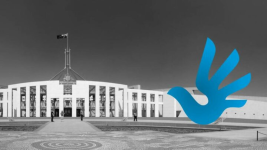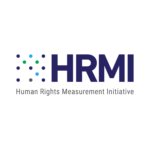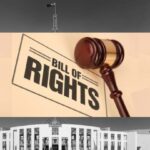Attorney General to Restore Human Rights Commission, After Coalition Destroyed It

Following his decision to drop the prosecution against ACT barrister Bernard Collaery, federal attorney general Mark Dreyfus is continuing to clean up the deplorable condition nine years’ worth of Coalition chief lawmakers left the nation’s legal affairs in.
On the second sitting day of the 47th Australian parliament, Dreyfus introduced the Australian Human Rights Commission Legislation Amendment (Selection and Appointment) Bill 2022, which aims to save our national human rights institution (NHRI) from its current state of disrepute.
The Global Alliance of National Human Rights Institutions (GANHRI) monitors NHRIs worldwide.
GANHRI’s Subcommittee on Accreditation (SCA) delivered its five-year review report into the Australian Human Rights Commission in March, and the watchdog deferred its decision on whether to reaccredit the AHRC with an A status, which it has always held, or whether to downgrade it to a B.
The 18-month deference was a result of the SCA questioning the Coalition government’s use of a loophole in the appointment process of AHRC commissioners, so that, rather selecting them from a pool of applicants, previous AGs have simply selected an individual they or their party preferred.
Restoring integrity
During his second reading speech on the AHRC legislation, Dreyfus outlined that it would establish “a merit-based and transparent” appointment process for the local rights body, which is in accordance with “the government’s overarching integrity agenda” and aims to see its A status reapplied.
The AHRC bill amends various pieces of federal antidiscrimination legislation to ensure that the president of the commission and all its commissioners will have adequate qualifications, and that appointments are capped at seven years, inclusive of reappointment.
In delivering the bill to the lower house, Dreyfus’ words had a touch of urgency about them, as he outlined that if SCA does return a B status, not only would the nation’s international standing be sullied, but it could also be locked out of participation in UN human rights and treaty processes.
The Labor AG further advised that the SCA found the current Australian selection and appointment process doesn’t comply with the 1993 Paris Principles, the minimum standards an NHRI must meet, and this was primarily due to three recent direct AHRC commissioner appointments.
A hostile approach
In appointing commissioners in a problematic manner, it appears that the Liberal Nationals government was actively undermining the Australian Human Rights Commission.
The latest appointment to draw the ire of the SCA was made last September by then AG Michaelia Cash. This involved Murdoch University academic Lorraine Finlay being appointed as Human Rights Commissioner.
Finlay had previously backed the Coalition in its failed attempt to water down race discrimination laws and strengthen religious freedoms above all other rights.
Then there was attorney general Christian Porter’s decision to appoint barrister Dr Ben Gauntlett to the position of Disability Commissioner, once again, without any publicly advertised process that would have resulted in a number of potential appointees being judged on suitability for the role.
Former AG George Brandis commenced the series of questionable appointments, when he made Tim Wilson the Human Rights Commissioner in December 2013.
Wilson had been director of the ultraconservative public policy thinktank the Institute of Public Affairs for seven years at the time of his appointment. He was a vocal critic of the AHRC. And he went on to serve as a federal Liberal MP from 2016 until the last election.
The SCA has deferred its final decision on the status of Australia’s human rights watchdog until October next year, which should give the Albanese government time to improve its standing, as it seems determined to forge a rights-based approach to governing the country.







